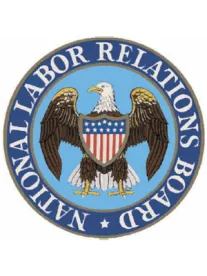A company’s requirement that new employees represented by a union sign a non-compete and confidentiality agreement (NCCA) as a condition of employment violated the National Labor Relations Act because the NCCA is a mandatory subject of bargaining that could not be unilaterally implemented, the NLRB has held. Minteq International, Inc., 364 NLRB No. 63 (July 29, 2016). However, contrary to its recent inclinations, the Board also found that an individual provisions of the NCCA – concerning confidential information – was lawful.
The collective bargaining agreement between Minteq and the union provided that new hires are probationary employees for the first six months of their employment and that any discipline, layoff, or discharge of a probationary employee “shall not be a violation of this Agreement.” After concluding their six-month probation, new hires may be disciplined, suspended, or discharged only if the employer has “just cause” to do so.
Shortly after the parties’ collective bargaining agreement went into effect, and without the union’s knowledge, Minteq unilaterally implemented a policy requiring new hires to sign the NCCA. The NLRB held the NCCA was a mandatory subject of bargaining and the union did not waive its right to bargain over its implementation. Accordingly, the Board held that Minteq violated the Act when it unilaterally implemented the NCCA policy.
The Board explained, among other reasons, that the NCCA “includes rules governing employees’ conduct that have the potential to affect the employees’ continued employment” since “agreeing to comply with the requirements of the NCCA is a term of employment, implicit in the NCCA is the threat of discipline or discharge for failing to comply with its provisions.” The Board also found that the provisions of the NCCA “have a clear and direct economic impact on employees – and thus represent precisely the sort of matters suitable for collective bargaining.” As another example, the Board stated the non-compete provision “prohibits an employee from working for another company that might have any connection to the Respondent’s business for 18 months afterward, effectively imposing a cost of lost economic opportunities on employees as a consequence of working for Respondent.”
Surprisingly, however, the Board held that the “Confidential Information” provision of the NCCA was lawful. The provision read as follows:
Confidential Information. [Employee agrees not to disclose Confidential Information] Confidential Information refers to any information not generally known in the relevant trade or industry which was obtained from the Company, or which was learned, discovered, developed, conceived, originated, or prepared by me in the scope of my employment. Such Confidential Information includes, but is not limited to, software, technical, and business information relating to the Company inventions or products, research and development, production processes, manufacturing and engineering processes, machines and equipment, finances, customers, marketing, and production and future business plans and any other information which is identified as confidential by the Company. …
The Board explained that the language of the provision must not be read “in isolation” and that the phrase cited by the ALJ “does not stand alone and must be read in context.” The Board observed that the provision “defines ‘confidential information’ as ‘any proprietary or confidential information or know-how belonging to the company,’ that is ‘not generally known in the relevant trade or industry,’ and which the employee ‘obtained from the Company … in the scope of [his or her] employment.’” The Board also noted this definition “is followed by examples of confidential information which illustrate its scope and meaning.” Thus, the Board held that “employees reading the concluding phrase, ‘any other information which is identified as confidential by the Company,’ would reasonably understand it to refer to the preceding examples of proprietary information and trade secrets, not information related to employees’ wages or working conditions.”
Minteq is another in a series of Board decisions attacking employer policies on the grounds that employees might interpret them to bar or restrict their right to engage in protected concerted activities. However, it also teaches that policy language must be read in context, not in isolation. Clear drafting, including illustrations and limiting or clarifying language, can avoid unintended unfavorable interpretations.






 />i
/>i
